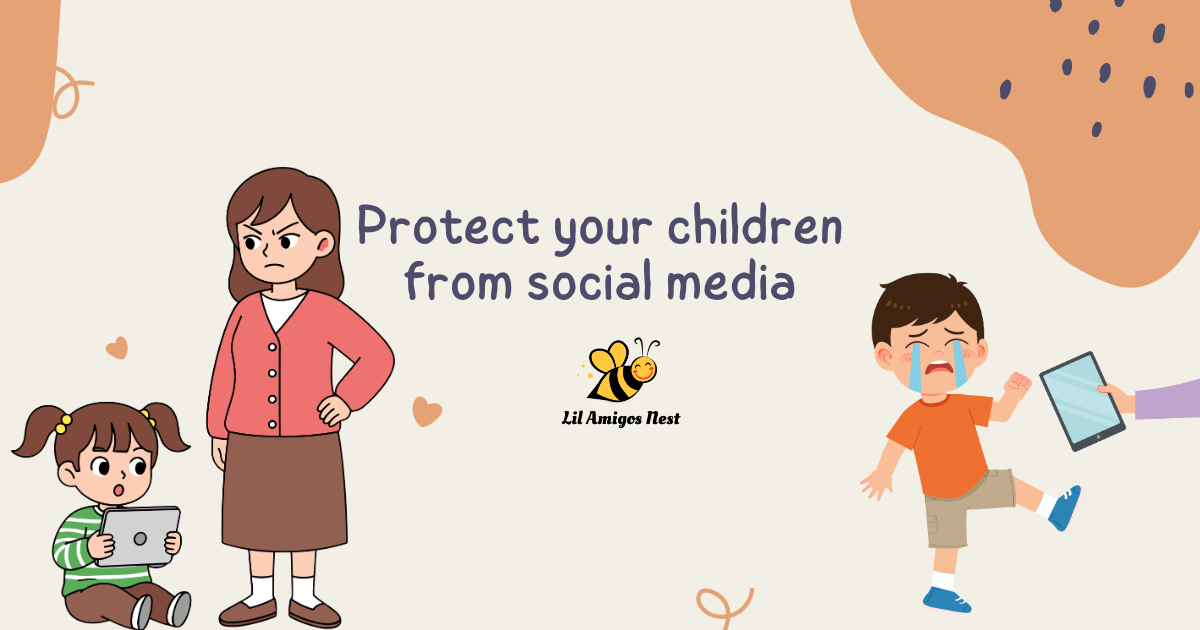Dealing with Screen Addiction in Kids: Tips for a Digital Detox

In today's fast-paced digital world, screens have become an inseparable part of our lives. From online learning to entertainment, children are spending more time on screens than ever before. While technology has its benefits, excessive screen time can lead to screen addiction in children, affecting their physical and mental well-being. As parents, it’s crucial to find a balance between the digital world and real-life experiences. This blog provides effective parenting tips to help reduce screen addiction and introduce a healthy digital detox for your child.
Understanding Screen Addiction in Children
Screen addiction is when kids become overly dependent on screens, whether it’s watching cartoons, playing video games, or scrolling through social media. Signs of screen addiction include irritability when screens are taken away, lack of interest in other activities, and difficulty in social interactions. This issue has become a major concern in modern parenting, as excessive screen time can affect sleep patterns, concentration levels, and overall well-being.
Why Is a Digital Detox Important?
A digital detox helps children regain control over their time, engage in real-world activities, and develop healthier habits. It also improves family bonding and reduces behavioral problems linked to excessive screen usage. A well-planned detox can enhance creativity, outdoor play, and face-to-face social skills.
Effective Parenting Tips for a Successful Digital Detox
- Set Screen Time Limits
One of the best ways to control screen addiction in children is by setting clear screen time rules. The American Academy of Pediatrics recommends that children aged 2-5 should have only one hour of screen time per day, while older kids should have consistent limits based on their needs. Using parental control apps can help monitor and restrict excessive usage. - Be a Role Model
Kids mimic their parents. If they see you constantly on your phone or watching TV, they will do the same. Practicing digital parenting means leading by example. Set screen-free times for yourself too and engage in family activities that don’t involve screens. - Create Screen-Free Zones
Designate areas in your home where screens are not allowed, such as the dining table and bedrooms. This encourages kids to engage in conversations, enjoy meals without distractions, and develop better sleeping habits. - Encourage Outdoor Activities
Instead of relying on screens for entertainment, encourage outdoor play. Take your kids to the park, enroll them in sports, or plan nature walks. Physical activities not only help in reducing screen addiction but also contribute to better health and well-being. - Introduce Engaging Offline Activities
Keep your children busy with hobbies like reading, painting, puzzles, or board games. These activities stimulate creativity and reduce the need for digital entertainment. - Use Screens as a Reward, Not a Routine
Instead of allowing unrestricted screen time, use it as a reward for completing chores, finishing homework, or engaging in physical play. This helps children understand the value of earning screen time rather than expecting it as a default activity. - Plan Family Bonding Activities
Spend quality time together as a family without screens. Whether it's storytelling, cooking together, or playing indoor games, such activities strengthen parent-child relationships and reduce screen dependency. - Monitor Content Consumption
Digital parenting isn't just about reducing screen time; it’s also about ensuring kids consume age-appropriate and educational content. Use parental controls and have open discussions about the pros and cons of digital content. - Encourage Social Interactions
Kids addicted to screens often struggle with real-world social interactions. Encourage them to participate in group activities, join hobby classes, or interact with friends and family to build their communication skills. - Implement a Digital Detox Challenge
Make digital detox fun by setting challenges like a 'No-Screen Sunday' or a ‘Tech-Free Evening.’ Reward their efforts with fun activities like movie nights (without smartphones) or family outings.
Overcoming Challenges in Digital Detox
Starting a digital detox can be challenging, especially if your child is already accustomed to excessive screen time. Expect resistance, tantrums, and complaints. However, patience, consistency, and positive reinforcement can make the transition smoother. Avoid sudden screen restrictions; instead, gradually reduce screen time and replace it with engaging activities.
Conclusion
Managing screen addiction in children requires conscious effort, patience, and smart parenting strategies. By setting screen time limits, encouraging outdoor play, and fostering healthy habits, you can create a balanced digital environment for your child. Modern parenting involves adapting to the digital age while ensuring that kids enjoy a well-rounded childhood filled with real-world experiences. A thoughtful digital detox can transform your child’s lifestyle, making them more active, creative, and socially engaged.






















Please complete your information below to login.
Sign In
Create New Account